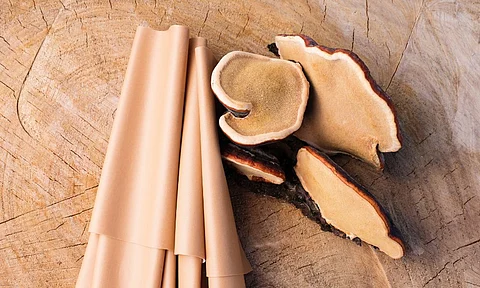
- Home
- About Us
- SOULIVITY TODAY Radio Show!
- COMMUNITY HUB
- GO SHOP by Soulivity!
- ColumnsColumns
- CultureCulture
- Lifestyle
- Contact Us!

Mushrooms are versatile, fascinating natural resources, and they’re more than just culinary delights. They’re staples in many delicious dishes, but mushrooms also have a wide array of practical and surprising uses beyond the kitchen. Learn about these six creative ways to use mushrooms besides simply eating them.
You can use mushrooms to create natural, eco-friendly dyes for fabrics and crafts. Species such as dyer’s polypore, oyster mushrooms, and lobster mushrooms can develop a range of colors, from yellows to reds. By boiling and processing the mushrooms, you can produce your own unique dyes, making your craft projects not only beautiful but also environmentally sustainable.
You can also use mushroom mycelium, the root-like structure of fungi, to make sustainable, biodegradable paper. By mixing mycelium with agricultural waste products such as straw, you can create a sturdy, eco-friendly alternative to traditional paper. This innovative use of mushrooms can reduce the deforestation that the paper production industry causes.
As concerns about plastic pollution and waste continue to grow, mycelium-based packaging has emerged as a sustainable solution. Many companies are now using mushroom mycelium to create biodegradable packaging materials that can replace traditional plastics, reducing environmental harm and waste.
Traditional leather production causes a strain on livestock and is fundamentally unsustainable. Mushroom leather has offered an alternative solution to this classic fashion trend. Many designers are now opting to use this eco-friendly resource to create purses, wallets, and backpacks.
Mushrooms have a unique ability to absorb and break down contaminants in soil. This process, known as mycoremediation, is used to clean up polluted environments, including oil spills and heavy metal–contaminated areas. Some mushroom species have successfully rehabilitated damaged ecosystems, making them invaluable tools for environmental restoration.
Mushrooms are natural, sustainable alternatives to many traditional beauty products. Their unique properties, which include antioxidant-rich compounds and hydrating elements, have led to the development of mushroom-based skin-care products that address a wide range of concerns. From mushroom-infused serums and creams that promote a radiant complexion to formulas designed to soothe and moisturize sensitive skin, these products are gaining popularity for their environmentally friendly solutions.
If you’re feeling inspired by these uses and ideas for mushrooms, consider taking it a step further by growing your own mushrooms. There are endless benefits of at-home mushroom cultivation, but most importantly, it’s a sustainable way to obtain your resources.
Mushrooms are more than just delicious additions to your favorite dishes. Their incredible versatility extends to various applications, from ecological restoration to creative crafts and sustainable living. By exploring these innovative ways to use mushrooms besides eating them, we can appreciate the beauty and practicality of fungi in entirely new ways.
